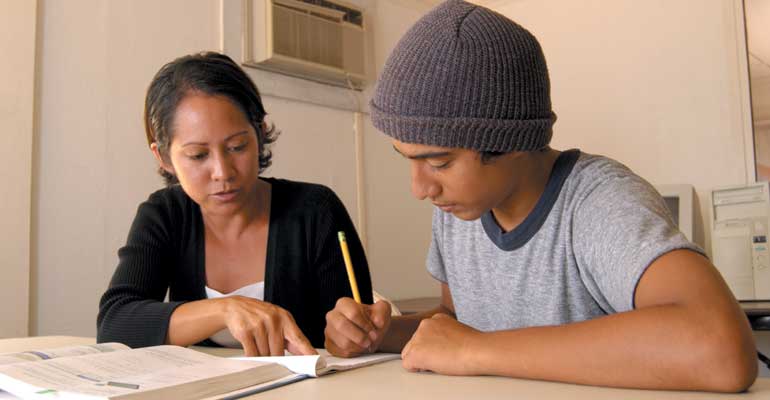Academically successful parents, who breezed through high school and sailed through honors programs, may have a hard time understanding what “normal” is, especially if they have a child whose learning style is different from their own or one with learning disabilities. Maybe you aren’t sure your child can manage college.
The good news: there are lots of colleges that happily accept the middle-of-the-road student. A teen poor at math can nonetheless thrive as a social worker or a lighting designer. Parents need only broaden their definition of success.
Even better news: many colleges have become more sensitive to helping individuals with learning problems. It’s now possible to receive special accommodation in test-taking, get textbooks on tape to enhance comprehension, or use technology to gain access to specialized material.
Take Anna, for example. By fourth grade, the girl was struggling with reading and, when tested, she was found to be severely dyslexic. Fortunately, there was an excellent teacher at her school, who immediately began training Anna in coping strategies. Wisely, Anna’s parents encouraged her to view her tutors as mentors, and she established adult friendships that pulled her through some rough times.
The key for Anna’s parents was to help her make the transition from the detailed learning plans typically set up for younger children to the independence needed in high school and college.
When it came time to apply to college, Anna chose nursing school, and was honest about her learning problems when filling out her applications. The school that accepted her allowed Anna to take tests off the clock and to tape lectures. The result: she graduated in the middle of her class and is now a successful nurse.
Adoption counselor Brenda McCreight offers these suggestions:
- Working for a few years before college can build confidence.
- Parents should be supportive of career choices, even if they are different from those they had hoped for.
Perhaps you imagined a professor in the family, rather than a nursery school teacher. The problem may be yours, not your child’s.

